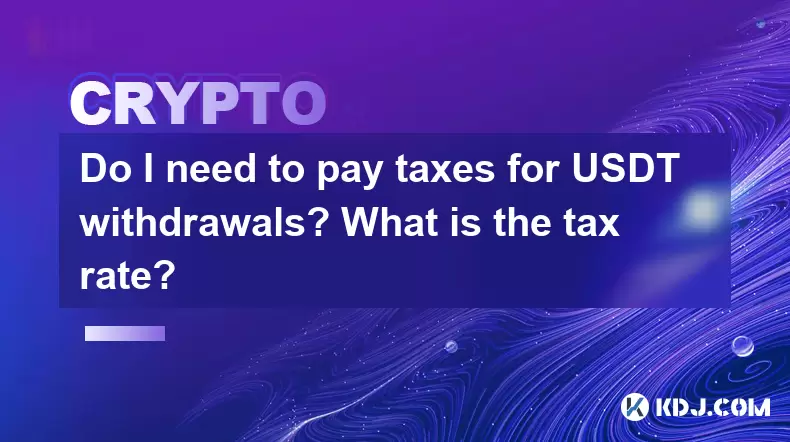-
 Bitcoin
Bitcoin $101,898.5005
-0.75% -
 Ethereum
Ethereum $2,258.1125
-1.07% -
 Tether USDt
Tether USDt $1.0004
0.01% -
 XRP
XRP $2.0178
-2.93% -
 BNB
BNB $624.0243
-1.53% -
 Solana
Solana $134.3298
-0.90% -
 USDC
USDC $0.9999
0.01% -
 TRON
TRON $0.2675
-2.05% -
 Dogecoin
Dogecoin $0.1538
-1.96% -
 Cardano
Cardano $0.5482
-1.11% -
 Hyperliquid
Hyperliquid $35.5636
5.45% -
 Bitcoin Cash
Bitcoin Cash $453.4902
-1.66% -
 Sui
Sui $2.5134
-2.97% -
 UNUS SED LEO
UNUS SED LEO $9.1292
1.77% -
 Chainlink
Chainlink $11.8457
-1.60% -
 Stellar
Stellar $0.2312
-2.73% -
 Avalanche
Avalanche $16.9721
0.29% -
 Toncoin
Toncoin $2.7549
-3.82% -
 Shiba Inu
Shiba Inu $0.0...01081
-1.10% -
 Litecoin
Litecoin $80.8250
-0.71% -
 Hedera
Hedera $0.1374
0.21% -
 Monero
Monero $305.4827
-2.36% -
 Ethena USDe
Ethena USDe $1.0006
0.00% -
 Dai
Dai $1.0000
-0.01% -
 Polkadot
Polkadot $3.2085
-3.12% -
 Bitget Token
Bitget Token $4.0845
-3.13% -
 Uniswap
Uniswap $6.3353
-1.63% -
 Pi
Pi $0.5085
-0.70% -
 Pepe
Pepe $0.0...08913
-3.82% -
 Aave
Aave $232.7090
-0.58%
Do I need to pay taxes for USDT withdrawals? What is the tax rate?
USDT withdrawals may trigger taxes based on transaction type; income is taxed at 10-37%, while capital gains depend on holding period. Keep detailed records for accurate reporting.
May 13, 2025 at 06:28 pm

Understanding USDT and Its Tax Implications
When dealing with cryptocurrencies like USDT (Tether), one of the most common questions is whether withdrawals are subject to taxes. USDT is a stablecoin pegged to the US dollar, designed to maintain a 1:1 value ratio. While it's often used for trading and as a store of value, its tax treatment can vary depending on the jurisdiction. In this article, we will explore the tax implications of USDT withdrawals, the applicable tax rates, and how to manage these taxes effectively.
Taxation of USDT Withdrawals in the United States
In the United States, the Internal Revenue Service (IRS) treats cryptocurrencies as property for tax purposes. This means that any transaction involving USDT, including withdrawals, can trigger tax events. The key factor determining whether a withdrawal is taxable is the nature of the transaction that led to the USDT being held in the first place.
If USDT was received as income: For example, if you earned USDT as payment for goods or services, withdrawing it would not trigger a new taxable event. However, the initial receipt of USDT would be taxable as income, and you would need to report it on your tax return.
If USDT was purchased: If you bought USDT with fiat currency or another cryptocurrency, withdrawing it does not typically result in a taxable event. However, if you later sell or exchange the USDT for another asset, that transaction could be subject to capital gains tax.
If USDT was used for trading: If you used USDT to trade other cryptocurrencies, the withdrawal itself might not be taxable. However, any gains or losses realized from trading activities would need to be reported and could be subject to capital gains tax.
Calculating the Tax Rate on USDT Withdrawals
The tax rate on USDT withdrawals, when applicable, depends on the nature of the transaction and your overall income level. Here's how it works:
Income Tax: If you received USDT as income, it would be taxed at your ordinary income tax rate. For the 2023 tax year, these rates range from 10% to 37%, depending on your income bracket.
Capital Gains Tax: If you are selling or exchanging USDT and it results in a capital gain, the tax rate depends on how long you held the USDT. Short-term capital gains (assets held for one year or less) are taxed at your ordinary income tax rate. Long-term capital gains (assets held for more than one year) are taxed at 0%, 15%, or 20%, depending on your income.
Reporting USDT Withdrawals on Your Tax Return
To properly report USDT withdrawals on your tax return, you need to keep detailed records of all your cryptocurrency transactions. Here's a step-by-step guide on how to report these transactions:
Gather all transaction records: Collect records of all your USDT transactions, including receipts, exchange records, and wallet statements.
Determine the nature of each transaction: Identify whether each USDT transaction was a purchase, sale, income, or exchange. This will help you determine the appropriate tax treatment.
Calculate gains and losses: For transactions that result in capital gains or losses, calculate the difference between the cost basis (the price you paid for the USDT) and the proceeds (the value you received when you sold or exchanged it).
Report on Form 8949 and Schedule D: Use IRS Form 8949 to report each transaction that resulted in a capital gain or loss. Then, transfer the totals to Schedule D of your Form 1040 to calculate your total capital gains or losses for the year.
Report income on Form 1040: If you received USDT as income, report it on the appropriate line of your Form 1040, depending on the nature of the income (e.g., self-employment income, wages, etc.).
Managing Tax Liabilities from USDT Withdrawals
Managing your tax liabilities from USDT withdrawals involves careful planning and record-keeping. Here are some strategies to help you manage these taxes effectively:
Keep detailed records: Maintain accurate records of all your USDT transactions, including dates, amounts, and counterparties. This will help you accurately report your transactions and minimize the risk of errors or audits.
Use tax software: Consider using cryptocurrency tax software that can help you track your transactions and generate the necessary tax forms. Popular options include CoinLedger, CryptoTrader.Tax, and TaxBit.
Consult a tax professional: If you have complex transactions or significant gains or losses, consider consulting a tax professional who specializes in cryptocurrency taxation. They can help you navigate the tax laws and optimize your tax strategy.
Consider tax-loss harvesting: If you have unrealized losses on other cryptocurrencies, you might be able to use tax-loss harvesting to offset gains from your USDT transactions. This involves selling assets at a loss to reduce your taxable income.
Frequently Asked Questions
Q: Do I need to report USDT withdrawals if I didn't sell or exchange them?
A: If you simply withdraw USDT from one wallet to another without selling or exchanging it, this action itself is not typically a taxable event. However, you still need to keep records of these transactions for tax purposes, especially if you later sell or exchange the USDT.
Q: Can I deduct losses from USDT transactions on my tax return?
A: Yes, if you realize a loss from selling or exchanging USDT, you can deduct these losses on your tax return. Capital losses can be used to offset capital gains, and if your losses exceed your gains, you can deduct up to $3,000 of the excess loss against your ordinary income.
Q: What happens if I don't report my USDT transactions to the IRS?
A: Failing to report your USDT transactions can result in penalties and interest. The IRS has been increasing its focus on cryptocurrency transactions, and non-compliance can lead to audits and significant financial consequences. It's important to accurately report all your transactions to avoid these risks.
Q: Are there any tax benefits to holding USDT long-term?
A: If you hold USDT for more than one year before selling or exchanging it, any resulting capital gains would be considered long-term capital gains. These are taxed at lower rates (0%, 15%, or 20%) compared to short-term capital gains, which are taxed at your ordinary income tax rate. This can result in significant tax savings if you have large gains.
Disclaimer:info@kdj.com
The information provided is not trading advice. kdj.com does not assume any responsibility for any investments made based on the information provided in this article. Cryptocurrencies are highly volatile and it is highly recommended that you invest with caution after thorough research!
If you believe that the content used on this website infringes your copyright, please contact us immediately (info@kdj.com) and we will delete it promptly.
- Bitcoin Price Wobbles: Crash Watch and Key Support Levels
- 2025-06-23 16:25:12
- Navigating the Crypto Seas: Charting a Course Through Bull Runs and Bear Markets
- 2025-06-23 16:25:12
- BNB Price Check: Stablecoin Surge vs. Prediction Rollercoaster
- 2025-06-23 14:25:12
- Metaplanet's Bitcoin Bonanza: Holdings Skyrocket Amidst Market Swings
- 2025-06-23 14:25:12
- Global Meltdown, Investors, and Safe Havens: Navigating the Storm
- 2025-06-23 14:30:12
- NFT Sales Snapshot: Guild of Heroes, Polygon, and the Market's Shifting Sands
- 2025-06-23 15:25:12
Related knowledge

How to choose a reliable USDT exchange service provider? How to identify?
Jun 12,2025 at 03:15pm
Understanding the Role of USDT in Cryptocurrency TradingUSDT (Tether) is one of the most widely used stablecoins in the cryptocurrency market. It is designed to maintain a 1:1 peg with the U.S. dollar, offering traders and investors a way to hedge against volatility while remaining within the crypto ecosystem. Choosing a reliable USDT exchange service p...

What is the most convenient way to cash out small amounts of USDT? Is there a shortcut?
Jun 11,2025 at 11:00pm
Understanding the Need to Cash Out Small USDT AmountsCashing out small amounts of USDT can be a challenge for many crypto users. Traditional methods often involve high fees, minimum withdrawal limits, or cumbersome verification processes that make it inefficient for small transactions. The key is to find a method that balances speed, cost, and convenien...

How to transfer USDT to PayPal or international payment tools?
Jun 15,2025 at 05:28am
Understanding the Basics of USDT and PayPal IntegrationUSDT (Tether) is a stablecoin pegged to the US dollar, offering blockchain-based value transfer with minimal volatility. PayPal, on the other hand, is a centralized digital wallet that facilitates fiat currency transactions globally. Direct integration between USDT and PayPal does not exist due to t...

How to exchange USDT for cash through P2P transactions? Is it safe?
Jun 18,2025 at 07:56am
Understanding USDT and P2P TransactionsTether (USDT) is a stablecoin pegged to the value of the US dollar, making it a popular choice for users who want to avoid the volatility of other cryptocurrencies while still participating in the crypto ecosystem. Peer-to-peer (P2P) transactions allow individuals to trade directly with each other without going thr...

Will USDT be frozen when withdrawing to a bank account? How to avoid it?
Jun 15,2025 at 10:03am
Understanding USDT Withdrawals and Bank Account Freezing RisksWhen users decide to withdraw USDT (Tether) to a bank account, one of the most common concerns is whether their funds will be frozen during the process. This concern stems from real-life cases where individuals have encountered delays or restrictions when converting digital assets into fiat c...

How to avoid risks when exchanging USDT for cash? What are the pitfalls?
Jun 11,2025 at 08:14pm
Understanding the Risks of Exchanging USDT for CashWhen exchanging USDT (Tether) for cash, users must be aware of the potential risks involved. As a stablecoin pegged to the US dollar, USDT is widely used in crypto transactions due to its price stability. However, converting it into fiat currency like USD or CNY can expose users to several pitfalls, inc...

How to choose a reliable USDT exchange service provider? How to identify?
Jun 12,2025 at 03:15pm
Understanding the Role of USDT in Cryptocurrency TradingUSDT (Tether) is one of the most widely used stablecoins in the cryptocurrency market. It is designed to maintain a 1:1 peg with the U.S. dollar, offering traders and investors a way to hedge against volatility while remaining within the crypto ecosystem. Choosing a reliable USDT exchange service p...

What is the most convenient way to cash out small amounts of USDT? Is there a shortcut?
Jun 11,2025 at 11:00pm
Understanding the Need to Cash Out Small USDT AmountsCashing out small amounts of USDT can be a challenge for many crypto users. Traditional methods often involve high fees, minimum withdrawal limits, or cumbersome verification processes that make it inefficient for small transactions. The key is to find a method that balances speed, cost, and convenien...

How to transfer USDT to PayPal or international payment tools?
Jun 15,2025 at 05:28am
Understanding the Basics of USDT and PayPal IntegrationUSDT (Tether) is a stablecoin pegged to the US dollar, offering blockchain-based value transfer with minimal volatility. PayPal, on the other hand, is a centralized digital wallet that facilitates fiat currency transactions globally. Direct integration between USDT and PayPal does not exist due to t...

How to exchange USDT for cash through P2P transactions? Is it safe?
Jun 18,2025 at 07:56am
Understanding USDT and P2P TransactionsTether (USDT) is a stablecoin pegged to the value of the US dollar, making it a popular choice for users who want to avoid the volatility of other cryptocurrencies while still participating in the crypto ecosystem. Peer-to-peer (P2P) transactions allow individuals to trade directly with each other without going thr...

Will USDT be frozen when withdrawing to a bank account? How to avoid it?
Jun 15,2025 at 10:03am
Understanding USDT Withdrawals and Bank Account Freezing RisksWhen users decide to withdraw USDT (Tether) to a bank account, one of the most common concerns is whether their funds will be frozen during the process. This concern stems from real-life cases where individuals have encountered delays or restrictions when converting digital assets into fiat c...

How to avoid risks when exchanging USDT for cash? What are the pitfalls?
Jun 11,2025 at 08:14pm
Understanding the Risks of Exchanging USDT for CashWhen exchanging USDT (Tether) for cash, users must be aware of the potential risks involved. As a stablecoin pegged to the US dollar, USDT is widely used in crypto transactions due to its price stability. However, converting it into fiat currency like USD or CNY can expose users to several pitfalls, inc...
See all articles
























































































